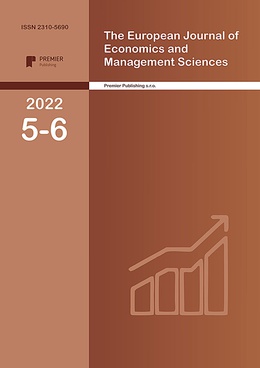Spending Habits, and Economic Growth Effects in Common Law vs. Non-Common Law Political Systems Among Developed Countries
Authors
Jiahao Mei

Share
Annotation
Introduction: Different law systems often lead to different degrees of economic developments and political systems, which are closely related to the life of citizens. There is a long debate about which law system, Common Law or Civil Law, is better for the economic development of a country. A popular viewpoint is that the Common Law system is superior to non-Common Law systems due to its higher protection for property.
Objective: Our goal is to evaluate which law system is better for economic systems, through data processing and statistical hypothesis testing. The findings can be a reference for further investigation of the advantages of different law systems.
Methods: To develop the model, we use the data from International Monetary Fund (IMF), World Bank, and various government Central Banks’ websites). We select 14 variables related to the key field of economic development. We first apply the Shapiro-Wilk test for normality to decide which statistical hypothesis test is appropriate. For normally distributed variables, we employ the parametric independent-samples t-test for mean difference; otherwise, we employ the non-parametric Mann-Whitney U Test. All the tests are done in R.
Result: Out of the 14 variables, we find three (i.e. final consumption expenditure, value-added manufacturing, and GDP growth) to be significant at 0.05 significance level. Common Law countries have significantly higher final consumption expenditure and GDP growth, with lower value-added manufacturing growth, than Civil Law countries.
Conclusions: The results imply that Common Law countries are indeed more helpful for general economic development, while Code Law countries are superior for economic development in manufacturing. These results support the viewpoint that the Common Law system gives people and companies more confidence to participate in the market, and thus, Common Law countries are better for economic developments. It also confirms this report’s hypothesis that Common Law countries are better than Code Law countries in promoting economics.
Keywords
Authors
Jiahao Mei

Share
References:
- Basile, Marjory G. “Protecting Intellectual Property Ownership Rights.” Employment Relations Today. Hoboken: Winter 1990-199 Volume 17, Issue 4: page 269, 7 pages.
- Dibadj, Reza. “Antitrust Law: Economic Theory and Common Law Evolution.” Antitrust Bulletin. New York: Spring, 2005. Vol. 50, Iss. 1; page 225, 14 pages.
- Hinde, Stephen. “Cyberthreats: Perceptions, Reality, and Protection.” Computers & Security. Volume 20. Year 2001. pages 364 – 371.
- Humphreys, Gordon. Higgs, Andrew. “Waybills: A case of Common Law laissez-faire in European Commerce.” The Journal of Business Law. London: September, 1992. page 453. 28 pages.
- International Monetary Fund. International Financial Statistics Website. URL Link: http://www.imf.org/
- Luthy, Teal E. “Assigning Common Law Claims for Fraud.” The University of Chicago Law Review. Chicago: Summer 1998. Vol. 65, Issue 3; page. 1001, 28 pages.
- Osborne, Evan. “What’s Yours in Mine: Rent-Seeking and the Common Law.” Public Choice. April, 2002: 111, 3-4. 18 pages.
- Posner, Richard A. “Intellectual Property: The Law and Economics Approach.” The Journal of Economic Perspectives. Nashville: Spring, 2005. Vol. 19, Iss. 2; page 57, 17 pages.
- World Bank. World Development Economic Information Website. URL Link: http://www.worldbank.org/


